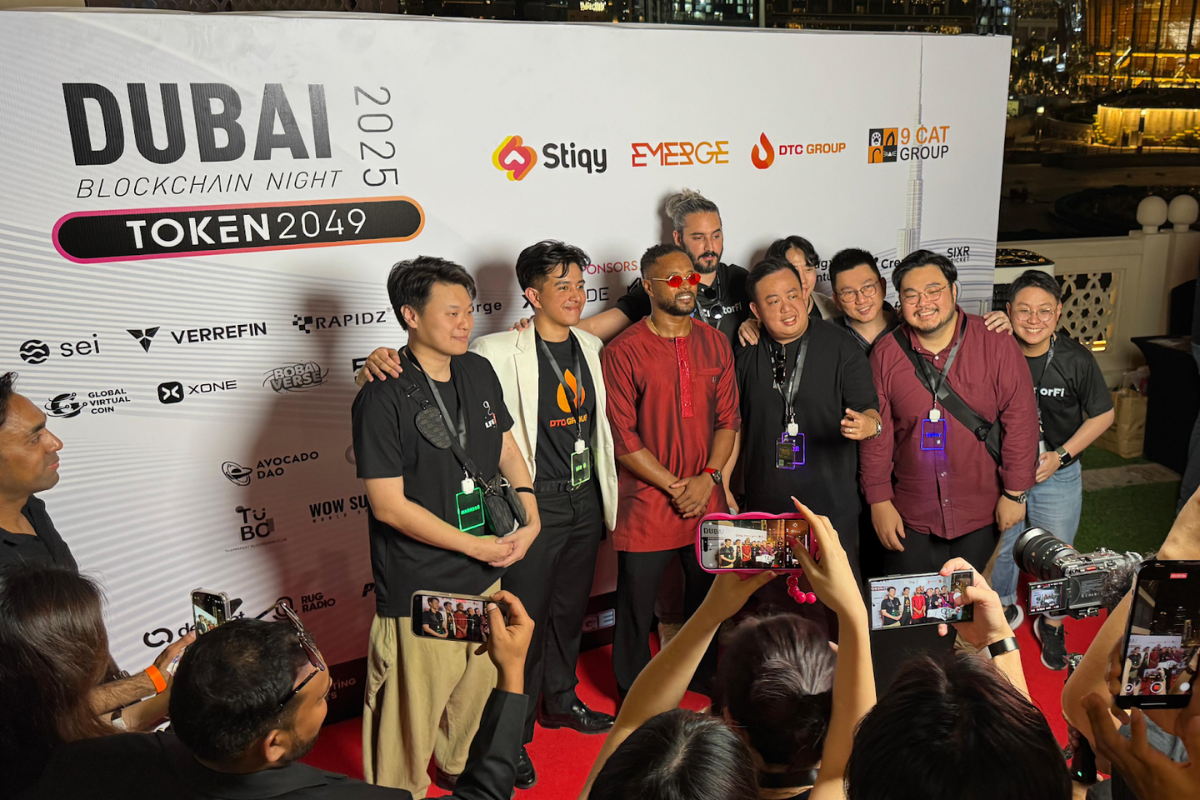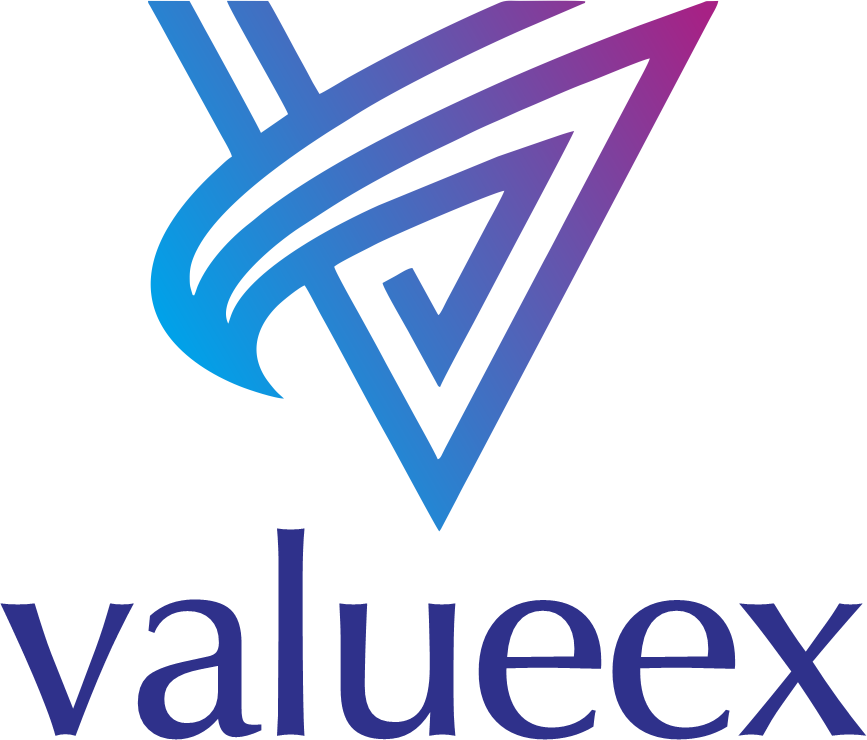Blockchain
JMU Limited Reports Unaudited Third Quarter of Fiscal Year 2019 Financial Results

JMU Limited (the “Company” or “JMU“) (Nasdaq: JMU) today announced its unaudited financial results for the three months ended September 30, 2019.
Third Quarter of Fiscal Year 2019 Highlights
As a result of the Company’s divesture of the food supply chain business and its shift to blockchain business in July 2019,
- Revenues were $580 thousand for the third quarter of fiscal year 2019.
- Gross profit was $464 thousand for the third quarter of fiscal year 2019.
- Income from operations for the third quarter of 2019 was $377 thousand.
Ms. Hua Zhou, Chairperson of the Board of Directors and Chief Executive Officer, commented, “As part of our on-going efforts to seek a new direction for the future development of our business, we have gradually geared our focus towards blockchain technology. Since the acquisition of our cryptocurrency solutions business in August, we are committed to expanding our blockchain business by both conducting internal research and development and acquiring companies with growth potential in the industry.”
“Our efforts are progressing rapidly as we get ready to launch our very first blockchain product, Mercurity, a provider of infrastructure and legal expertise for asset digitization. Going forward, we will continue to focus on the strategic deployment of our blockchain business and seek to benefit from the growing blockchain market over the long term,” Ms. Zhou concluded.
Development of Current Business
In the third quarter of 2019, the Company achieved substantial progress in the development of its first blockchain product, Mercurity, to provide infrastructure and legal services in connection with assets digitalization. As a connection between traditional finance and the blockchain world, Mercurity provides solutions for clients to tokenize their financial or physical assets and facilitate the digitization, listing and trading of such assets around the world. At the end of the third quarter of 2019, JMU has completed the test phase of Mercurity and is preparing for its official launch.
Third quarter of Fiscal Year 2019 Financial Performance
Revenues were $580 thousand in the third quarter of 2019 generated from the Company’s new blockchain business, compared to $28.7 million generated from the food supply chain business in the same period of last year.
Cost of revenues were $116 thousand in the third quarter of 2019 associated with the new blockchain business, compared to $28.3 million associated with the food supply chain business in the same period of last year.
Gross profit for the third quarter of 2019 was $464 thousand, compared to $401 thousand in the same period of last year. Gross margin was 80.0% in the third quarter of 2019 compared to 1.4% in the same period of last year.
Selling and marketing expenses in the third quarter of 2019 decreased to nil as the Company has not carried out substantial marketing for the new blockchain business. The Company expects its selling and marketing expenses to increase in line with the overall business growth. Selling and marketing expenses were $805 thousand in the same period of last year, which were incurred in connection with the food supply chain business.
General and administrative expenses in the third quarter of 2019 were $87 thousand that the Company incurred for the new blockchain business, compared to $995 thousand in the same period of last year, which were incurred in connection with the food supply chain business.
Income from operations in the third quarter of 2019 was $377 thousand generated from the blockchain business compared to a loss from operations of $1.4 million in the same period of last year, which was incurred by the food supply chain business.
Income before provision for income taxes in the third quarter of 2019 was $396 thousand compared to a net loss attributable to the Company of $1.7 million in the same period of last year.
Non-GAAP net income attributable to the Company, which excludes amortization of acquired intangible assets, impairment loss, share-based compensation, and related provision for income tax benefits, was $0.4 million in the third quarter of 2019 and non-GAAP net loss attributable to the Company was $1.5 million in the same period of last year. For the three months ended September 30, 2019 and 2018, the Company’s weighted average number of ordinary shares used in computing loss per ordinary share was 1,757,983,781 and 1,476,866,650, respectively.
As of September 30, 2019, the Company’s cash and cash equivalents were $159 thousand compared to $357 thousand as of December 31, 2018. Total shareholders’ equity as of September 30, 2019, was $7.8 million, compared to total shareholders’ deficit of $22.2 million as of December 31, 2018.
Non-GAAP Measures
To supplement the Company’s consolidated financial statements presented in accordance with U.S. generally accepted accounting principles (“U.S. GAAP”), the Company uses various non-GAAP financial measures that are adjusted from results based on U.S. GAAP to exclude amortization of acquired intangible assets, impairment of goodwill, share-based compensation and related provision for income tax benefits.
The non-GAAP financial information is provided as additional information to help investors compare business trends among different reporting periods on a consistent basis and to enhance investors’ overall understanding of the historical and current financial performance of the Company’s operations and prospects for the future. The non-GAAP financial information should be considered in addition to results prepared in accordance with U.S. GAAP, but should not be considered a substitute for or superior to U.S. GAAP financial results. In addition, the Company’s calculation of this non-GAAP financial information may be different from the calculation used by other companies, and therefore comparability may be limited.
A limitation of using these non-GAAP financial measures is that amortization of acquired intangible assets, impairment of goodwill, share-based compensation and related provision for income tax benefits have been and may continue to be for the foreseeable future significant recurring expenses in the Company’s results of operations. The Company compensates for these limitations by providing reconciliations of non-GAAP financial measures to U.S. GAAP financial measures. Please see the reconciliation tables at the end of this earnings release.
Safe Harbor Statement
This announcement contains forward-looking statements. These statements are made under the “safe harbor” provisions of the U.S. Private Securities Litigation Reform Act of 1995. These forward-looking statements can be identified by terminology such as “aim,” “anticipate,” “believe,” “estimate,” “expect,” “hope,” “going forward,” “intend,” “ought to,” “plan,” “project,” “potential,” “seek,” “may,” “might,” “can,” “could,” “will,” “would,” “shall,” “should,” “is likely to” and the negative form of these words and other similar expressions. Among other things, statements that are not historical facts, including statements about JMU’s beliefs and expectations, the business outlook and quotations from management in this announcement, as well as JMU’s strategic and operational plans, are or contain forward-looking statements. Forward-looking statements involve inherent risks and uncertainties. A number of factors could cause actual results to differ materially from those contained in any forward-looking statement, including but not limited to the following: The general economic and business conditions in China may deteriorate. The growth of Internet and mobile user population in China might not be as strong as expected. JMU’s plan to enhance customer experience, upgrade infrastructure and increase service offerings might not be well received. JMU might not be able to implement all of its strategic plans as expected. Competition in China may intensify further. All information provided in this press release is as of the date of this press release and are based on assumptions that we believe to be reasonable as of this date, and JMU does not undertake any obligation to update any forward-looking statement, except as required under applicable law.
SOURCE JMU Ltd
Blockchain
Blocks & Headlines: Today in Blockchain – April 30, 2025

Today’s blockchain ecosystem is defined by soaring ambitions, regulatory crosswinds, and an ever-evolving tapestry of decentralized applications. In this edition of Blocks & Headlines: Today in Blockchain – April 30, 2025, we cover five pivotal developments shaping Web3’s next chapter:
-
Telegram’s TON Factory Launch – A breakthrough in on-chain scalability.
-
EU Data-Protection Ruling Threatens Full Blockchain Histories – The fight between GDPR and immutability.
-
One Championship MMA Game Debuts on Sui – A major Web3 foray into mobile gaming.
-
U.S. Senate Eyes New Blockchain Act – Bipartisan push to regulate digital assets.
-
DMG Blockchain’s AI Data-Center Investment – Convergence of crypto mining and AI infrastructure.
Below, we deliver concise yet detailed analyses of each story, infused with expert commentary on their strategic significance. Read on to understand how these trends will influence protocol adoption, developer incentives, regulatory frameworks, and the future of decentralized networks.
1. Telegram’s TON Factory Boosts On-Chain Scalability
What happened:
Telegram’s Open Network (TON) team officially unveiled TON Factory, a novel toolkit designed to streamline the deployment and scaling of decentralized applications. Built atop TON’s sharded architecture, TON Factory enables developers to spin up isolated “factories”—subnets that can host smart contracts, NFTs, and DeFi modules—while sharing security guarantees with the main chain. According to the announcement, early tests show that each factory can process up to 15,000 transactions per second (TPS) in isolation, with near-instant finality.
Why it matters:
Scalability remains blockchain’s Achilles’ heel. TON Factory’s factory-of-subnets approach promises to lower the barrier to entry for high-throughput dApps—everything from micro-payment systems to real-time gaming. By offering elastic compute and fee-optimization mechanisms, Telegram aims to undercut legacy Layer-1 networks and attract a new generation of builders.
Opinion & Implications:
-
Developer Experience: Abstractions like preconfigured factories could accelerate time-to-market for teams lacking deep consensus expertise.
-
Network Effects: If TON’s UX outpaces rivals (e.g., Ethereum’s zk-rollups or Solana’s Turbine), we may see a migration of liquidity and talent.
-
Security Trade-Offs: Isolating factories can mitigate cross-dApp failures, but adds complexity to transaction routing and dispute resolution. Audits will be essential to validate this novel model.
Source: Cointelegraph – Telegram TON Factory Launch
2. EU Regulators Propose Deleting Entire Blockchains for GDPR
What happened:
European data-protection authorities have floated a radical interpretation of GDPR: the “right to erasure” could extend to purging entire on-chain histories containing personal data. Under this view, controllers operating within the EU must either anonymize linked data or entirely delete chain segments—potentially forcing chains to implement selective pruning or permissions.
Why it matters:
Blockchain’s immutability ethos directly clashes with GDPR’s erasure mandate. If regulators enforce selective deletion, networks may need to retrofit privacy-preserving layers (e.g., zero-knowledge proofs, chameleon hashes) or risk noncompliance fines up to 4% of global turnover.
Opinion & Implications:
-
Protocol Evolution: Expect a surge in privacy-by-design protocols that segregate PII off-chain while anchoring proofs on-chain.
-
Jurisdictional Fragmentation: Projects may geo-fence EU users or spawn EU-compliant forks—fracturing unified global ledgers.
-
Commercial Impact: Exchanges and custodians face urgent deadlines to audit on-chain data holdings and deploy erasure tools—or face hefty penalties.
Source: Daily Hodl – EU Blockchain Erasure
3. One Championship’s MMA Game Launches on Sui for iOS/Android
What happened:
One Championship, Asia’s premier martial-arts league, has partnered with Mysten Labs to release “ONE Fight Manager”—a play-to-earn mobile title powered by the Sui blockchain. Available now on iOS and Android, the game lets users train NFT fighters, compete in PvP leagues, and earn SUI tokens through ranked matches. Mysten Labs touts sub-two-second transaction finality and near-zero gas fees, enabling seamless gameplay even for on-chain microtransactions.
Why it matters:
Gaming remains the killer app for mass blockchain adoption. By leveraging Sui’s Move VM and object-centric model, ONE Fight Manager addresses two critical pain points: UX friction and cost barriers. Real-time, feeless interactions are vital to onboard traditional gamers accustomed to instant feedback loops.
Opinion & Implications:
-
User Acquisition: High-profile IP like One Championship can drive millions of installs—and funnel new users into the broader Sui ecosystem.
-
Economics & Tokenomics: Careful tuning of token emission and NFT scarcity will determine whether the game sustains long-term engagement or succumbs to “play-to-earn” collapse.
-
Cross-Chain Synergy: Success here may inspire similar partnerships on Aptos, Ethereum, or emerging Layer-1s, intensifying competition for flagship gaming titles.
Source: Decrypt – ONE Championship Sui Game
4. Ohio Senator Leads Push for U.S. Blockchain Act
What happened:
Senator J.D. Kerns (R-OH) has introduced the Blockchain Innovation and Consumer Protection Act, aiming to create a federal framework for digital-asset oversight. Key provisions include:
-
Defined Classifications: Differentiating between payment tokens, security tokens, and utility tokens.
-
Licensing Regime: Establishing a “Digital Asset Services Commission” to grant interstate licenses for exchanges and custodians.
-
Consumer Safeguards: Mandatory proof of reserves, clear disclosure requirements, and dispute-resolution protocols.
Why it matters:
After years of fragmented state laws and agency turf wars, this Act represents Congress’s first cohesive effort to legislate blockchain. By preempting state-level divergence, it could streamline compliance for businesses—provided it balances innovation with investor protection.
Opinion & Implications:
-
Regulatory Clarity: Clear definitions can foster institutional entry, reducing legal ambiguity that stifles corporate treasuries from adopting crypto.
-
Unintended Consequences: Overly stringent licensing could entrench incumbents and erect high barriers for startups.
-
Global Competitiveness: U.S. leadership in blockchain law may influence other jurisdictions—critical as Asia and Europe race to craft their own regulatory regimes.
Source: The Street – Blockchain Act Proposal
5. DMG Blockchain Solutions Invests in 2MW of AI Data-Center Gear
What happened:
DMG Blockchain Solutions Inc. has announced the acquisition of two megawatts of high-density GPU infrastructure, repurposed for both crypto-mining and AI-model training workloads. Housed in a new Quebec data center, the multi-use clusters will dynamically allocate capacity between proof-of-work operations and commercial AI clients—leveraging off-peak pricing to optimize ROI.
Why it matters:
The convergence of crypto-mining and AI training infrastructure underscores growing synergies between two of the most compute-hungry industries. By offering GPUs for rent during mining downtimes, DMG anticipates 30% higher utilization rates compared to mono-purpose facilities.
Opinion & Implications:
-
Revenue Diversification: Dual-use data centers can hedge against crypto price swings and tap into booming AI-as-a-service demand.
-
Energy Efficiency: High-efficiency GPUs paired with Quebec’s hydroelectric power may set new benchmarks for sustainable compute.
-
Competitive Landscape: Other mining operators may follow suit, catalyzing a wave of AI-crypto hybrid hosting providers.
Source: GlobeNewswire – DMG AI Infrastructure Purchase
Conclusion
April 30, 2025, illuminated blockchain’s boundless dynamism: scalability breakthroughs at Telegram’s TON Factory; privacy versus immutability in the EU’s GDPR debate; mass-market gaming on Sui; legislative clarity from Capitol Hill; and the AI-crypto infrastructure nexus in Quebec. These stories reveal an industry simultaneously innovating at the protocol layer, grappling with regulation, and exploring cross-sector partnerships. For developers, investors, and policymakers alike, the imperative is clear: build resilient architectures that anticipate regulatory shifts, prioritize user experience, and harness synergies across emerging technologies. Stay tuned to Blocks & Headlines tomorrow for your next daily briefing on the pulse of blockchain’s evolving frontier.
The post Blocks & Headlines: Today in Blockchain – April 30, 2025 appeared first on News, Events, Advertising Options.
Blockchain
From Sydney to the World – Valueex (VUEE) Exchange Announces Entry into the U.S. Market
Blockchain
DIFY Announces Return to MENA with Dubai Blockchain Night 2025

Following a series of successful global editions, DIFY is making a highly anticipated return to the innovation capital of the world — Dubai. The Dubai Blockchain Night 2025, organized by DIFY, took place on 29 April 2025, delivering an electrifying evening of networking, discovery, and gamified engagement right at the iconic doorstep of Palace Downtown.
We are proud to introduce our Title Sponsor – STIQY, the trusted growth and loyalty tool crafted for rising Web3 projects. Attendees experienced live interactive CTA campaigns powered by STIQY’s customizable, white-label solutions—designed to drive scalable engagement and long-term user retention.
Building on the momentum of past editions in Singapore, South Korea, Malaysia, Vietnam, Thailand and previous Dubai showcases, this year’s Dubai Blockchain Night featured a gamified experience where participants dive into real-time activation challenges onsite — gaining first-hand exposure to how STIQY’s dynamic tools operate.
Event Highlights:
-
Title Sponsor: STIQY
-
Co-hosts: EMERGE Group, DTC Group, 9 Cat Group
-
Date: 29 April 2025
-
Location: Palace Downtown
Sponsors include Verrefin, Rapidz, Sei and Avocado Guild.
Highly Curated Networking
The event brought together over 500 participants, including top Web3 stakeholders and decision-makers from the MENA and APAC regions. It served as an exclusive, invite-only gathering for founders, builders, venture capitalists, and media to connect and collaborate.
The post DIFY Announces Return to MENA with Dubai Blockchain Night 2025 appeared first on News, Events, Advertising Options.
-

 Blockchain5 days ago
Blockchain5 days agoBlocks & Headlines: Today in Blockchain – April 25, 2025 | BitNile, Dutch Blockchain Week, Citigroup, Philippine Blockchain Week, D.O.G.E Foundation
-

 Blockchain6 days ago
Blockchain6 days agoBlaqclouds Board Approves 30-Day Revenue Acceleration and Ecosystem Monetization Plan
-

 Blockchain6 days ago
Blockchain6 days agoBlocks & Headlines: Today in Blockchain – April 24, 2025 (Decrypt, CoinDesk, Cointelegraph, 80 Level, UNDP/BGA)
-

 Blockchain Press Releases6 days ago
Blockchain Press Releases6 days ago10% Rebate: Bybit Card Introduces USDC Cashback
-

 Blockchain Press Releases5 days ago
Blockchain Press Releases5 days agoBybit Exchange Gold & FX Trading Hits All-Time-High As Gold Prices Soar
-

 Blockchain Press Releases7 days ago
Blockchain Press Releases7 days agoBlockchain for Good Alliance Launches Global Accelerator and Fund with UNDP
-

 Blockchain Press Releases2 days ago
Blockchain Press Releases2 days agoBTC Pricing Alert: Bitcoin Rebounds as Trump’s Trade War Comments Ignite Market Rally – Bybit x Block Scholes Report
-

 Blockchain5 days ago
Blockchain5 days agoOv Finance Upgrades Blockchain Infrastructure to Deliver Faster, Safer Digital Asset Trading










































